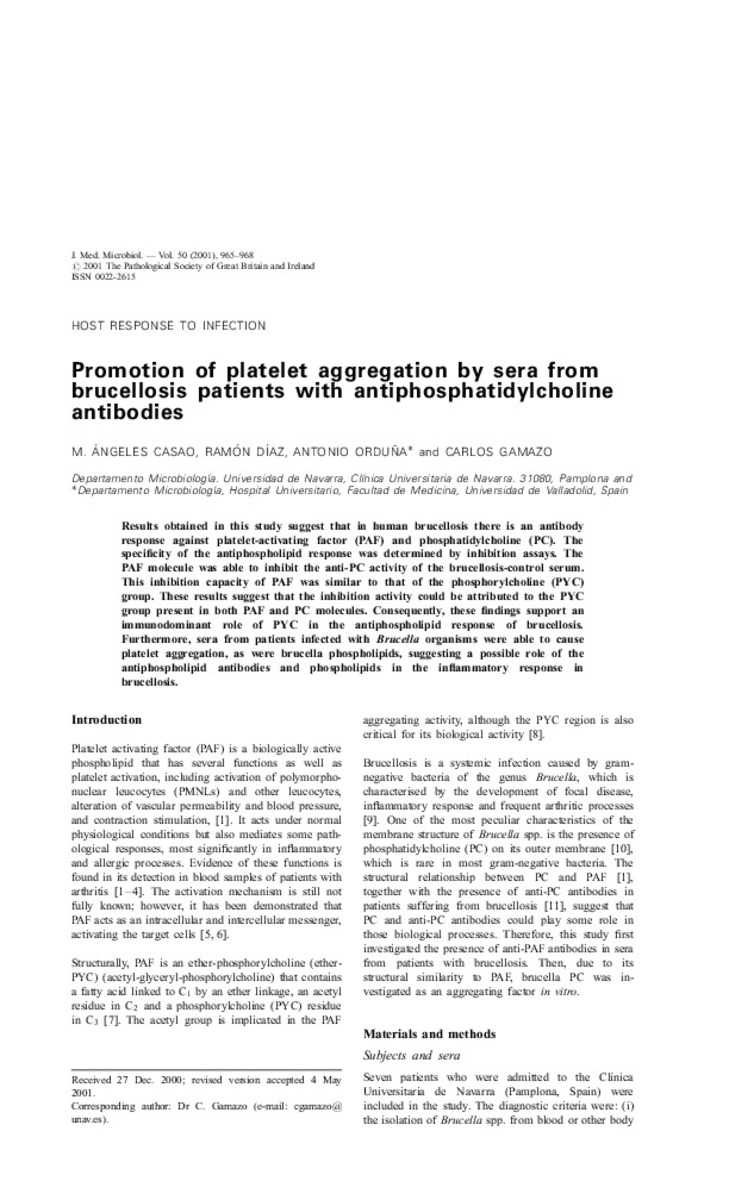Promotion of platelet aggregation by sera from brucellosis patients with antiphosphatidylcholine antibodies
Keywords:
Antibodies, Bacterial/blood/immunology
Antibody Specificity
Brucellosis/immunology/physiopathology
Publisher:
Society for General Microbiology
Citation:
Casao MA, Diaz R, Orduna A, Gamazo C. Promotion of platelet aggregation by sera from brucellosis patients with antiphosphatidylcholine antibodies. J Med Microbiol 2001 Nov;50(11):965-968.
Statistics and impact
0 citas en

0 citas en

Items in Dadun are protected by copyright, with all rights reserved, unless otherwise indicated.










